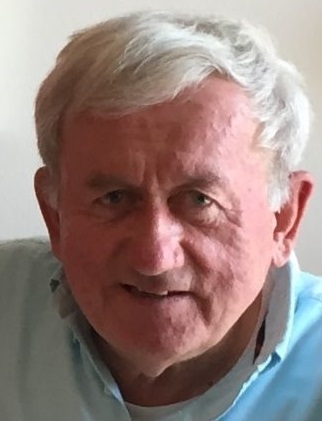 A member of the American Historical Association since 1973, Eugene J. Kisluk was an erudite scholar and a born raconteur. His broad interests and training as a historian made his chosen profession—he was an appraiser of rare books and manuscripts—a suitable one. Each of his appraisals not only comprised a research project, but also allowed him to tell a story. His clients included university libraries, museums, and law firms. Early in his career, Kisluk served as an expert witness for the New York County District Attorney’s Office to establish the value of a cache of stolen documents.
A member of the American Historical Association since 1973, Eugene J. Kisluk was an erudite scholar and a born raconteur. His broad interests and training as a historian made his chosen profession—he was an appraiser of rare books and manuscripts—a suitable one. Each of his appraisals not only comprised a research project, but also allowed him to tell a story. His clients included university libraries, museums, and law firms. Early in his career, Kisluk served as an expert witness for the New York County District Attorney’s Office to establish the value of a cache of stolen documents.
Known for his fluency and skill with Slavic languages, Kisluk was regularly asked to evaluate collections of eastern European printed and autograph materials for either sale or donation. He always physically inspected the books and papers, which included portrait photographs inscribed to the great Russian opera singer Fyodor Ivanovich Chaliapin by such contemporaries as Anton Chekhov, Leo Tolstoy, Nikolai Rimsky-Korsakov, and Giacomo Puccini. Kisluk once appraised a coronation album and memorabilia from Tsar Nicholas II and his wife, Alexandra Feodorovna. Retired professors frequently approached him for the assessment of personal papers, manuscripts, and book collections.
Kisluk’s most celebrated projects include his participation in the private sale of a trove of letters exchanged between the future Pope John Paul II and the Polish-born American philosopher Anna-Teresa Tymieniecka. Their correspondence documents the unusual friendship that developed between Cardinal Karol Wojtyla, then archbishop of Kraków, and Tymieniecka, which began in 1973 and lasted until shortly before his death in 2005. What began as a professional relationship—she offered to assist the cardinal with the translation of his book The Acting Person—became a more intimate bond. After Tymieniecka disclosed her personal feelings for him, Cardinal Wojtyla continued to value her companionship. Despite speculation about their relationship, Kisluk made clear that while the cardinal’s letters reveal an emotional attachment to Tymieniecka, they also show that he never broke his vow of celibacy. The correspondence was the subject of a 2016 BBC documentary, for which Kisluk provided his expertise.
Born in Poland in 1948, Kisluk immigrated with his parents and younger brother to the United States in 1961, moved to Connecticut, and graduated from New Britain High School in 1967. He earned his bachelor’s, master’s, and PhD degrees in history from Columbia University, with a dissertation devoted to the Great Emigration from Poland following the anti-Russian uprising of 1830–31. Kisluk’s study focused on the nearly 10,000 people—including the poet Adam Mickiewicz and the composer Fryderyk Chopin—who left Poland and settled in France, England, and elsewhere in Europe, as well as in the United States. In 1832, Polish exiles living in Paris established the Polish Democratic Society (TDP), considered the first modern Polish political party. Examining the role of the TDP during the European revolutions of 1848–49, Kisluk’s work was published in 2005 with the title Brothers from the North: The Polish Democratic Society and the European Revolutions of 1848–1849. In his review of the monograph, John Stanley observed that although many of the archival documents were destroyed, Kisluk managed to explore hundreds of primary and secondary sources in different countries, presenting not only an extraordinary amount of evidence but also a coherent narrative.
Though he specialized in 19th-century history, Kisluk also worked on other periods. His chapter for the 2007 exhibition catalog Fragile Diplomacy: Meissen Porcelain for European Courts, ca. 1710–63 explained the historical circumstances that saw Friedrich August, elector of Saxony, ascend to the throne as King August II of Poland.
At the time of his death, Kisluk was preparing a book that examined the history of prisoners of war, a project that required extensive research ranging from antiquity to modern warfare and the Geneva Convention. It is regrettable that he was unable to complete this project, particularly given his gift for making complex historical issues accessible to all readers.
Daniëlle Kisluk-Grosheide
New York, NY
Tags: In Memoriam Europe

This work is licensed under a Creative Commons Attribution-NonCommercial-NoDerivatives 4.0 International License. Attribution must provide author name, article title, Perspectives on History, date of publication, and a link to this page. This license applies only to the article, not to text or images used here by permission.
The American Historical Association welcomes comments in the discussion area below, at AHA Communities, and in letters to the editor. Please read our commenting and letters policy before submitting.
Comment
Please read our commenting and letters policy before submitting.






